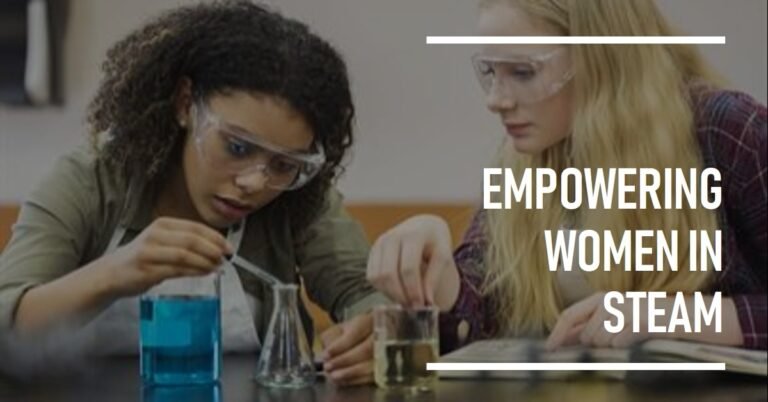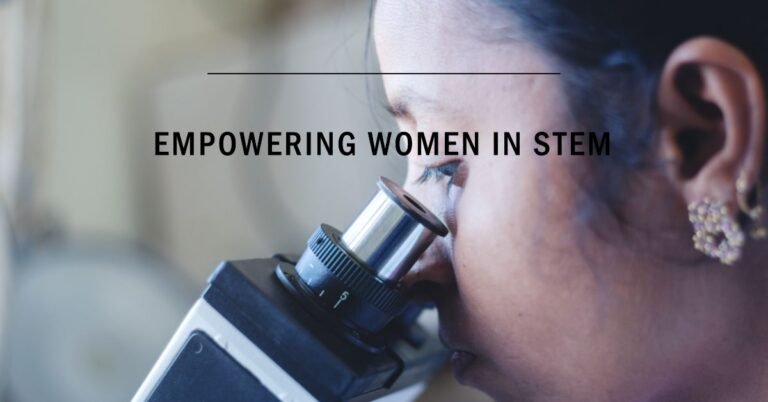Is Nursing A STEM Major
So you’re interested in a healthcare career, but the world of STEM (Science, Technology, Engineering, and Math) also piques your curiosity? Well, what if you could combine these interests? Wondering, “Is nursing a STEM major?” The answer, believe it or not, is a bit more nuanced than a simple yes or no.
This article dives deep into the debate surrounding nursing and its STEM credentials. We’ll explore the scientific foundation of nursing practice, examine the arguments for and against its STEM classification, and unveil the exciting career paths that await aspiring nurses.
Is Nursing a STEM Major?
While some organizations recognize the strong scientific underpinnings of nursing, others don’t explicitly categorize it as a STEM field. Let’s unpack this further:
- The U.S. Bureau of Labor Statistics (BLS) acknowledges nursing as a STEM-adjacent field, recognizing the application of scientific principles in nursing practice.
- The Higher Education Research Institute (HERI) at UCLA includes “Nursing” under its STEM umbrella, highlighting the presence of health professions within the broader STEM category.
- Some government agencies, however, like the Department of Homeland Security and Immigration and Customs Enforcement (ICE), don’t classify nursing on their official STEM lists.
Why Nursing Deserves a Spot in STEM
Here’s why nursing possesses strong arguments for STEM inclusion:
- Solid Science Foundation: A core aspect of nursing education revolves around a deep understanding of biology, chemistry, anatomy, and physiology. Nurses leverage this scientific knowledge to assess patients, make diagnoses, and administer medications.
- Technological Integration: Modern nursing relies heavily on sophisticated medical technology. From monitoring vital signs with electronic equipment to administering medications through complex pumps, nurses are on the frontlines of utilizing cutting-edge technology in patient care.
- Data-Driven Decision Making: Nurses analyze vast amounts of data – patient charts, lab results, vital signs – to make critical decisions about patient care. This data analysis forms the bedrock of evidence-based practice in nursing.
Real-Life Example: Imagine a nurse caring for a diabetic patient. They’ll need to understand the scientific principles of insulin action (biology and chemistry), monitor blood sugar levels using a glucometer (technology), and interpret the data to determine appropriate insulin dosage (data-driven decision making). This scenario perfectly exemplifies the blend of science, technology, and critical thinking that defines nursing practice.
Why Some Argue Against Nursing as STEM
Despite the compelling arguments for STEM inclusion, here are some perspectives against classifying nursing as STEM:
- Focus on Patient Care: Nursing emphasizes patient well-being and holistic care, encompassing not just the physical but also the emotional and psychological aspects of a patient’s experience. This focus on empathy and interpersonal skills might be seen as distinct from the traditional, hard-science approach of STEM fields.
- Curriculum Variations: Nursing programs may differ in the depth and structure of their science courses compared to traditional STEM programs.
- Historical Stereotypes: The field of nursing, traditionally viewed as a female-dominated profession, might struggle against historical biases associated with STEM being a male-dominated domain.
Why Is Nursing Not A Stem Major?
There are a few reasons why nursing isn’t universally considered a STEM major, despite the strong arguments for its inclusion. Here’s a breakdown of the opposing viewpoints:
- Focus on Patient Care: Nursing emphasizes a holistic approach to patient well-being. This includes not just the physical aspects of care, but also the emotional and psychological needs of the patient. This focus on empathy and interpersonal skills might be seen as distinct from the traditional, hard-science approach of STEM fields that tend to prioritize experimentation, research, and development of new technologies.
- Curriculum Variations: Nursing programs can differ in the depth and structure of their science courses compared to traditional STEM programs. While core science subjects like biology, chemistry, anatomy, and physiology are foundational, nursing programs might dedicate a larger portion of the curriculum to clinical skills and patient interaction compared to a pure science degree.
- Historical Stereotypes: The field of nursing has traditionally been viewed as a female-dominated profession. Unfortunately, some lingering historical biases might exist that associate STEM fields with being more male-dominated. These biases can play a role in how nursing is perceived in the context of STEM.
It’s important to remember that these are just arguments against a strictly STEM classification. As you saw earlier, nursing heavily integrates scientific principles, utilizes advanced technology, and relies on data analysis in daily practice. The debate surrounding nursing and STEM is ongoing, and with the growing emphasis on technology and data-driven healthcare, the role of science in nursing is likely to become even more prominent in the future.
Is Nursing Stem Or Humanities?
Nursing falls somewhere between STEM (Science, Technology, Engineering, Math) and Humanities. Here’s why:
Science Connection:
- Strong foundation in science: Nurses need a deep understanding of biology, chemistry, anatomy, and physiology to assess patients, diagnose conditions, and administer medications.
- Tech integration: Modern nursing relies on sophisticated medical technology, from monitoring vital signs to administering medications. Nurses are at the forefront of using this technology in patient care.
- Data analysis: Nurses analyze patient charts, lab results, and vital signs to make critical decisions. This data-driven approach is a hallmark of STEM fields.
Humanistic Aspects:
- Patient-centered care: Nursing emphasizes empathy, communication, and emotional support for patients. This focus on the human experience aligns more with humanities disciplines.
- Holistic approach: Nurses consider not only the physical aspects of illness but also the emotional and psychological well-being of patients. This holistic view differs from the typically reductionist approach of some STEM fields.
The Bottom Line:
- Nursing isn’t currently classified as a core STEM major, but the U.S. Bureau of Labor Statistics recognizes it as STEM-adjacent.
- The debate continues, but regardless of classification, nursing offers a unique blend of scientific knowledge, technological expertise, and compassionate care.
The Future of Nursing in the STEM Conversation
The conversation surrounding nursing and STEM classification is ongoing. As the healthcare landscape evolves, with even greater emphasis on technology and data analysis, the role of science in nursing is likely to become even more prominent.
This recognition might lead to a future where nursing is undeniably classified as a STEM major. Regardless of the official classification, however, one thing remains clear: a career in nursing offers a unique blend of scientific knowledge, technological expertise, and compassionate care, making it a truly rewarding and ever-evolving profession.
Taking Charge of Your Nursing Career: Steps Toward Success
So, you’ve decided that nursing is the perfect blend of your passion for science and your desire to help others. Here are some actionable steps to set yourself on the path to a thriving nursing career:
- Explore Different Nursing Programs: Research various nursing programs (ADN, BSN, MSN) to find the right fit for your academic goals and career aspirations. Consider factors like program length, course offerings, and clinical rotations.
- Strengthen Your Science Foundation: If your science background feels shaky, take some refresher courses in biology, chemistry, anatomy, and physiology. Demonstrating a strong foundation in these core sciences will benefit you throughout your nursing education.
- Develop Your Math Skills: Don’t underestimate the importance of math in nursing! Medication dosages, fluid balance calculations, and interpreting test results all involve a good grasp of mathematical concepts.
- Cultivate Compassion and Communication Skills: Being a skilled nurse goes beyond scientific knowledge. Developing strong communication and interpersonal skills allows you to effectively connect with patients, understand their needs, and build trusting relationships.
- Gain Relevant Experience: Volunteer at hospitals, clinics, or nursing homes to gain firsthand experience in the healthcare setting. This not only strengthens your resume but also helps you solidify your career choice.
The Enduring Value of a Nursing Career
The debate about nursing’s STEM classification might continue, but one thing remains undeniable: a nursing career offers immense value and countless opportunities for professional growth.
Here are some of the key benefits you can expect as a nurse:
- Make a Tangible Difference: Every day, nurses play a vital role in improving patients’ lives. From providing comfort and care to administering critical treatments, you’ll directly contribute to patient well-being.
- High Demand and Job Security: The healthcare industry is constantly growing, and nurses are in high demand. This translates to excellent job security and ample opportunities for career advancement.
- Diverse Work Settings: Nursing isn’t confined to hospital walls. Pursue specialties like critical care, pediatrics, or public health nursing, or explore exciting non-traditional settings like schools, home healthcare, or research.
- Competitive Salaries and Benefits: Nurses enjoy competitive salaries and comprehensive benefits packages, including health insurance, retirement plans, and paid time off.
- Lifelong Learning: The field of nursing is constantly evolving with new technologies and advancements in medical science. As a nurse, you’ll have ongoing opportunities to learn and refine your skills throughout your career.
FAQs
Does being a nurse qualify for a STEM visa?
Unfortunately, not currently. While the BLS recognizes nursing as STEM-adjacent, some government agencies, like ICE, don’t include it on their official STEM lists for visa purposes.
Should I pursue a nursing career if I’m interested in STEM?
Absolutely! Nursing offers a fantastic opportunity to apply scientific principles and technological advancements in a real-world healthcare setting.
What are some exciting career paths in nursing?
The world of nursing is vast! From critical care nurses to nurse practitioners specializing in areas like cardiology or pediatrics, there’s a path for nearly every interest.
Conclusion: A Fulfilling Future in Nursing Awaits
Whether or not nursing officially receives the STEM stamp of approval, one thing is certain: a career in nursing offers an exceptional blend of intellectual challenge, technological innovation, and the profound satisfaction of caring for others.
If you’re looking for a profession that allows you to make a real difference in people’s lives, while also engaging your scientific curiosity and technological aptitude, then nursing might be the perfect fit for you. Embrace the scientific foundations of nursing, delve into the ever-expanding world of healthcare technology, and embark on a rewarding journey of caring, healing, and making a positive impact on the world.








One Comment